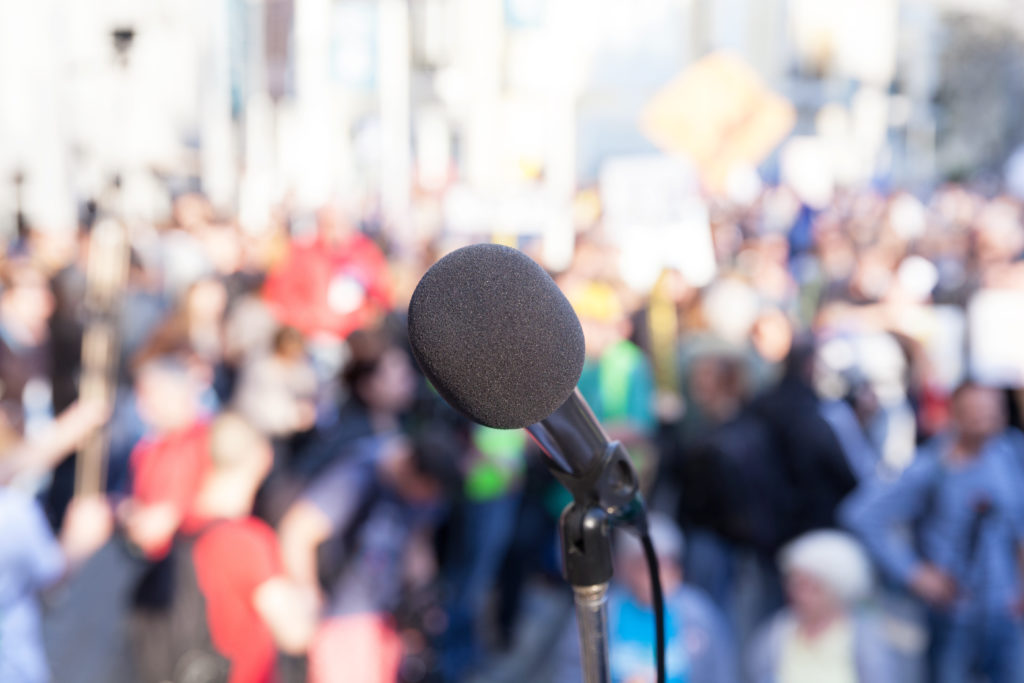Human Rights Day: Protecting and Defending Freedom of Expression

By David Isaac, Chair of the EHRC and CFNHRI
Human Rights Day is a time to reflect on how, after one of the world’s darkest times, we turned words of hatred into words of dignity and respect. These words, enshrined in the Universal Declaration of Human Rights in 1948 (UDHR), marked our commitment to reimagining a fairer, safer, more equal world where no one should be persecuted for being themselves.
Communication is the foundation of how we understand each other and the world around us. How we participate in dialogue is vital to how we function coherently as a society, to the way we gain perspective, and cultivate respect and compassion for each other’s experiences and differences. Article 19 of the UDHR safeguards our right to hold and express our opinions aloud without interference, and to share and receive information through any media regardless of frontiers. Over the years, this right has been incorporated into numerous international conventions and treaties as well as domestic human rights laws.
Freedom of expression encompasses and protects political discussion, cultural and artistic expression, teaching and religious discourse, and is fundamental to the realisation and enjoyment of other rights such as the right to vote.
Today, the protection of this right is more important than ever. Technology has reduced geographic distances and boundaries and allows us to express ourselves in new and diverse ways. Through apps and social media we can express our opinions at the touch of a button and see the immediate effect our words can have. Through the proliferation of Wi-Fi and mobile networks it is easier than ever for ideas and ideologies to become global. We have all witnessed the power of these globalised networks to support and galvanise movements to tackle injustice and inequality, as well as to incite violence and hatred. That is why it is vital that we consider how we engage with our right to freedom of expression. This right does not provide us with licence to abuse it, and we must, of course, all take responsibility for our choice of words, how we use them and for what purpose.
Hate speech, derogatory, and discriminatory language has no place in any society, and yet it is sadly becoming more prevalent in the way we communicate with each other. Discourse on issues including race and religion, immigration, sexual orientation and gender identity, and even climate change has progressively become more toxic. Threats of death, rape and violence have become more common within daily discourse, as has the resurgence of rhetoric that stokes fear of difference. Developments in surveillance and data gathering are also creating new challenges to freedom of expression, and we are witnessing a growing trend in some countries where speech is increasingly censored by limiting access to the internet and restricting the use of social media.
It is the responsibility of all of us to protect and defend the right to freedom of expression. This means fighting for and protecting whistle-blowers, journalists and our right to a free press. It means educating ourselves about misinformation, how it is being deployed and why, and how we can challenge the perpetuation of harmful stereotypes in our media, politics and society. We must ensure that institutions of education are places where free enquiry and differing views are cultivated and not shut down. We need to question who has control over the moderation of our speech, whose voices are being silenced and by whom. In the face of increasingly complex issues it is vital that we resist narrow nostalgic views and reductive rhetoric that divides us into harmful ‘us and them’ groups.
By upholding and defending our right to freedom of expression we do justice to the complexity of our humanity and our capacity to imagine and learn, listen and consider, discuss and debate, to form opinions and to change them. This means listening to people with whom we disagree.
In the face of unprecedented change, Human Rights Day is an opportunity for us to consider how the right to freedom of expression is applied, protected and upheld in the 21st Century. It is an opportunity to recognise the power of language to reduce discrimination, positively influence media narratives and public opinion, heal divisions, reduce isolation and improve how people are treated.
Our words can inspire hope through shared experiences that unite us in our differences to transcend geography and generations. Freedom of expression is a right, a privilege and a great responsibility. How we choose to communicate, interpret and act on the words of others is important. Words Matter.
This Human Rights Day, how will you use yours?